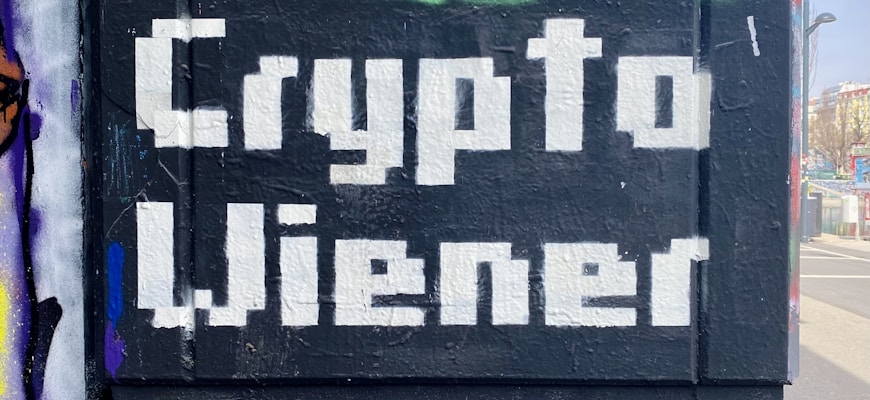How Decentralized Exchanges Are Changing the Crypto Landscape

- Understanding the rise of decentralized exchanges
- The benefits of trading on decentralized platforms
- Challenges faced by decentralized exchanges
- Regulatory concerns surrounding decentralized exchanges
- The future of decentralized exchanges in the crypto industry
- Comparing centralized and decentralized exchanges
Understanding the rise of decentralized exchanges
Decentralized exchanges have been gaining popularity in the cryptocurrency space due to their ability to provide a more secure and transparent trading environment. Unlike centralized exchanges, which rely on a single entity to facilitate trades and store funds, decentralized exchanges operate on a peer-to-peer network, allowing users to trade directly with one another without the need for a middleman. This eliminates the risk of hacks or exit scams that are common with centralized exchanges.
One of the key reasons for the rise of decentralized exchanges is the growing concern over privacy and security in the cryptocurrency industry. With centralized exchanges requiring users to provide personal information and undergo KYC/AML verification, many traders are turning to decentralized platforms for a more anonymous trading experience. Additionally, decentralized exchanges are often seen as more resistant to government censorship and interference, making them an attractive option for users in countries with strict regulations on cryptocurrency trading.
Another factor driving the popularity of decentralized exchanges is the increasing demand for access to a wider range of cryptocurrencies. While centralized exchanges typically list only a limited selection of coins and tokens, decentralized exchanges often support a much broader range of assets, allowing users to trade lesser-known or niche cryptocurrencies. This has made decentralized exchanges a preferred choice for traders looking to diversify their portfolios and explore new investment opportunities.
Overall, the rise of decentralized exchanges represents a significant shift in the crypto landscape, offering users a more secure, private, and diverse trading experience. As the cryptocurrency industry continues to evolve, decentralized exchanges are likely to play an increasingly important role in shaping the future of digital asset trading.
The benefits of trading on decentralized platforms
Trading on decentralized platforms offers a range of benefits that are revolutionizing the crypto landscape. One of the primary advantages is the enhanced security provided by decentralized exchanges (DEXs). By eliminating the need for a central authority to hold users’ funds, DEXs significantly reduce the risk of hacks and theft.
Another key benefit of trading on decentralized platforms is the increased privacy and anonymity they afford users. Unlike centralized exchanges, which often require users to undergo extensive verification processes, DEXs allow individuals to trade without revealing their personal information.
Decentralized platforms also offer greater control and ownership of assets. Users retain control of their private keys, meaning they have full ownership of their funds at all times. This level of control is particularly appealing to those who value autonomy and self-sovereignty.
Furthermore, decentralized exchanges typically have lower fees compared to their centralized counterparts. Without the need for intermediaries, DEXs can offer more competitive trading fees, allowing users to maximize their profits and minimize costs.
In addition, decentralized platforms promote transparency and trust in the crypto space. By utilizing blockchain technology, DEXs provide a clear record of all transactions, which can be verified by anyone at any time. This transparency helps to build confidence among users and fosters a more open and accountable trading environment.
Challenges faced by decentralized exchanges
Decentralized exchanges have brought about significant changes in the crypto landscape. However, they also face several challenges that need to be addressed for wider adoption and success.
One of the main challenges faced by decentralized exchanges is liquidity. Unlike centralized exchanges that have large pools of liquidity, decentralized exchanges often struggle to attract enough traders and orders to ensure smooth trading. This can lead to wider spreads and slippage, making it less attractive for traders to use decentralized exchanges.
Another challenge is the lack of user-friendly interfaces. Decentralized exchanges can be more complex to use compared to centralized exchanges, which can deter less experienced traders from using them. Improving the user experience and making decentralized exchanges more intuitive could help increase their adoption.
Security is also a major concern for decentralized exchanges. While they are touted for their security features, they are not immune to hacks and vulnerabilities. Ensuring the safety of users’ funds and data is crucial for building trust and confidence in decentralized exchanges.
Regulatory uncertainty is another challenge that decentralized exchanges face. As regulators around the world grapple with how to classify and regulate cryptocurrencies, decentralized exchanges are often caught in the crossfire. Clear regulatory guidelines could help legitimize decentralized exchanges and attract more users and investors.
Despite these challenges, decentralized exchanges continue to grow in popularity and offer unique benefits to users. By addressing these issues, decentralized exchanges can further revolutionize the crypto landscape and provide a more decentralized and secure way to trade digital assets.
Regulatory concerns surrounding decentralized exchanges
Decentralized exchanges have been gaining popularity in the crypto landscape due to their ability to provide users with more control over their funds and increased privacy. However, there are regulatory concerns surrounding these platforms that are worth considering.
One of the main concerns is the lack of KYC (Know Your Customer) and AML (Anti-Money Laundering) procedures on decentralized exchanges. This could potentially lead to these platforms being used for illicit activities such as money laundering and terrorist financing. Regulators are paying close attention to this issue and may impose stricter regulations on decentralized exchanges in the future.
Another regulatory concern is the difficulty in enforcing compliance with regulations on decentralized exchanges. Since these platforms are decentralized and operate across multiple jurisdictions, it can be challenging for regulators to monitor and enforce compliance. This could lead to a lack of consumer protection and increased risk for investors.
Additionally, there is concern about the lack of transparency on decentralized exchanges. Since transactions are peer-to-peer and do not go through a centralized authority, it can be difficult to track and trace transactions. This could make it easier for bad actors to engage in fraudulent activities without being caught.
In conclusion, while decentralized exchanges offer many benefits to users, there are legitimate regulatory concerns that need to be addressed. It is important for regulators, developers, and users to work together to find solutions that balance innovation and consumer protection in the crypto landscape.
The future of decentralized exchanges in the crypto industry
Decentralized exchanges (DEXs) have been gaining significant traction in the crypto industry, offering users a more secure and private way to trade digital assets. As the demand for DEXs continues to grow, many believe that they represent the future of cryptocurrency trading.
One of the key advantages of DEXs is that they allow users to retain control of their funds throughout the trading process, eliminating the need for a centralized authority to hold onto assets. This not only reduces the risk of hacks and theft but also provides users with a greater sense of security and autonomy.
Furthermore, decentralized exchanges operate on blockchain technology, which ensures transparency and immutability of transactions. This means that all trades are recorded on a public ledger, making it easier to track and verify the movement of assets.
Looking ahead, the future of decentralized exchanges in the crypto industry appears promising. With the increasing interest in privacy and security, DEXs are likely to become more mainstream, attracting a larger user base and driving further innovation in the space.
Comparing centralized and decentralized exchanges
Decentralized exchanges (DEXs) and centralized exchanges (CEXs) are two primary types of platforms where users can buy and sell cryptocurrencies. Each type has its own set of advantages and disadvantages that cater to different needs and preferences.
Centralized exchanges are operated by a single authority, which means that users need to trust the exchange to hold their funds and execute trades. On the other hand, decentralized exchanges operate on a peer-to-peer network, allowing users to trade directly with each other without the need for a central authority.
One of the main advantages of centralized exchanges is their user-friendly interfaces and advanced trading features. They also typically have higher liquidity and faster transaction speeds compared to decentralized exchanges. However, centralized exchanges are more vulnerable to hacking attacks and regulatory scrutiny.
Decentralized exchanges, on the other hand, offer increased security and privacy since users retain control of their funds throughout the trading process. They also eliminate the need for users to undergo a lengthy verification process to start trading. However, decentralized exchanges often have lower liquidity and slower transaction speeds compared to centralized exchanges.
In conclusion, both centralized and decentralized exchanges have their own strengths and weaknesses. Centralized exchanges are better suited for users who prioritize convenience and advanced trading features, while decentralized exchanges are more suitable for users who value security and privacy. Ultimately, the choice between the two types of exchanges depends on individual preferences and priorities.






